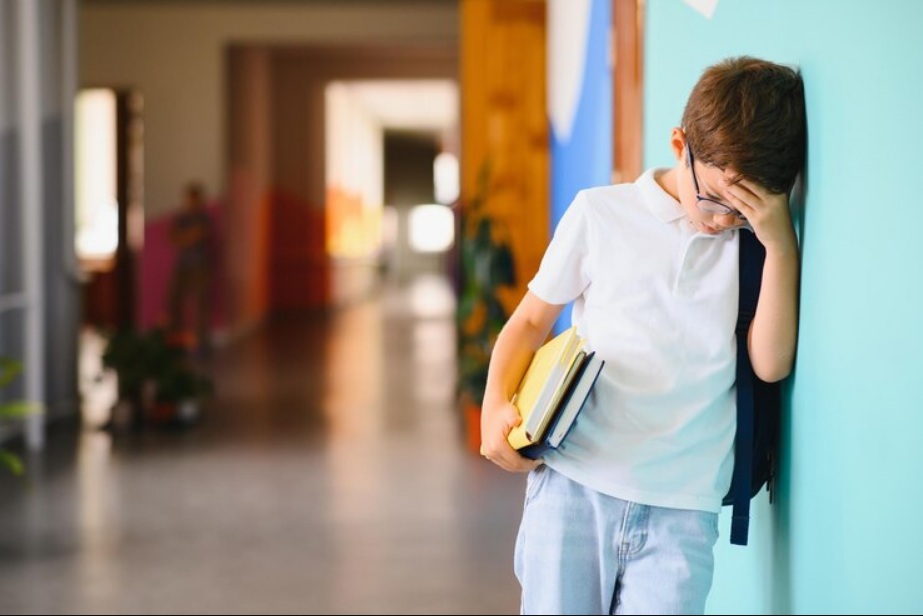Going back to school can be a tough time for kids, especially when summer winds down and classes loom on the horizon. It’s common for children to feel stressed about returning to the classroom. Changes in routine, new teachers, and the pressure to perform can lead to jitters that disrupt sleep, appetite, and mood.
Parents can find it hard to see their children struggle with these feelings, but there’s good news. A child psychologist in Bethesda can offer guidance and strategies to help soothe those back-to-school butterflies. With expert help, families can turn this challenging time into an opportunity for growth and resilience.
Understanding Back-to-School Anxiety
Back-to-school anxiety isn’t just a bump in the road for kids. It’s a real concern that can cause significant distress. This type of anxiety often stems from fear of the unknown—new schedules, unfamiliar classrooms, or expectations of homework, to name a few. Some kids might worry about leaving home, while others fret about fitting in with peers.
Here are a few signs that your child might be experiencing back-to-school anxiety:
– Trouble sleeping or recurring nightmares
– Frequent complaints of stomachaches or headaches
– Avoidance of school-related discussions
– Mood swings or increased irritability
– Reluctance to participate in usual activities
Being aware of these symptoms helps parents notice when their child needs extra support. While it’s normal for kids to feel a bit anxious about school, watching for these signs ensures that any more serious issues get addressed. Parents play a key role in creating an environment where children feel safe to talk about their worries, paving the way for effective solutions.
In these moments, understanding and empathy are powerful tools. Open conversation fosters trust and can lead to appropriate actions, like seeking guidance from a specialist if needed.
The Role of a Child Psychologist in Bethesda
A child psychologist plays a significant part in helping families tackle back-to-school anxiety. These professionals understand the challenges children face and are equipped with strategies to ease their worries. By working closely with families, they can address specific issues and help build confidence in both kids and parents.
Using various methods, child psychologists help children express their feelings and thoughts in a constructive way. Approaches like cognitive-behavioral therapy allow kids to identify and change negative thought patterns, while play therapy provides a safe space for younger children to navigate their emotions. These therapies promote positive behavior and gradually reduce anxiety, paving the way for a smoother school transition.
In Bethesda, seeking the expertise of a local child psychologist provides added benefits. Their familiarity with the community and schools can lead to more tailored support. They can offer insight into how local schools function, easing some of the mystery that may contribute to a child’s anxiety.
Practical Tips for Parents
Parents play a key role in helping their children manage back-to-school anxiety. With a few practical steps, parents can make this transition period less daunting:
– Maintain a Routine: Start setting a school-like schedule a few weeks before school starts. This helps kids adjust their sleep and wake times gradually.
– Visit School in Advance: Touring the school together can make children feel more comfortable. Meeting teachers and seeing classrooms ahead of time lessens some of the unknowns.
– Encourage Open Communication: Create a supportive environment where kids can express their worries freely. Listening to their concerns validates their feelings and helps brainstorm solutions together.
These actions reinforce stability and safety, which can significantly reduce stress. When parents actively participate in preparing for the school year, they build confidence in their children, showing them that they’re not alone in facing these challenges.
When to Seek Professional Help
While many children cope with a little anxiety, there are times when professional help is warranted. If anxiety interferes with daily life—such as causing ongoing school avoidance or severe emotional distress—it’s wise to consult a child psychologist.
Sensitive scenarios include:
– Persistent fears that do not improve with home strategies
– Major changes in behavior that seem out of the ordinary for your child
– Anxiety that affects social interactions and friendships
Recognizing when to seek expert advice can make a substantial difference. Professional intervention can prevent anxiety from escalating and help children find healthier ways to handle their emotions.
Creating a Supportive Environment
Providing a nurturing environment both at home and school is essential in managing anxiety. At home, maintaining consistency and routine brings comfort. Simple traditions like family dinners or bedtime stories help children feel secure.
At school, working in partnership with teachers ensures that support continues beyond the home. Engaging with school counselors can create a network of understanding and reinforce the support system needed for a child to thrive. A school-wide approach to understanding individual needs can turn anxiety into excitement for learning.
Finding ways to leverage this support inside and outside of the home strengthens resilience, allowing kids to face new school experiences with courage and positivity.
If you’re noticing your child struggling with school-related anxiety, consider reaching out for professional help. A child psychologist in Bethesda can offer the support and strategies needed to ease these challenges. At Behavioral & Educational Solutions P.C., our team is ready to guide your family through this transition, helping your child thrive in their school environment.





